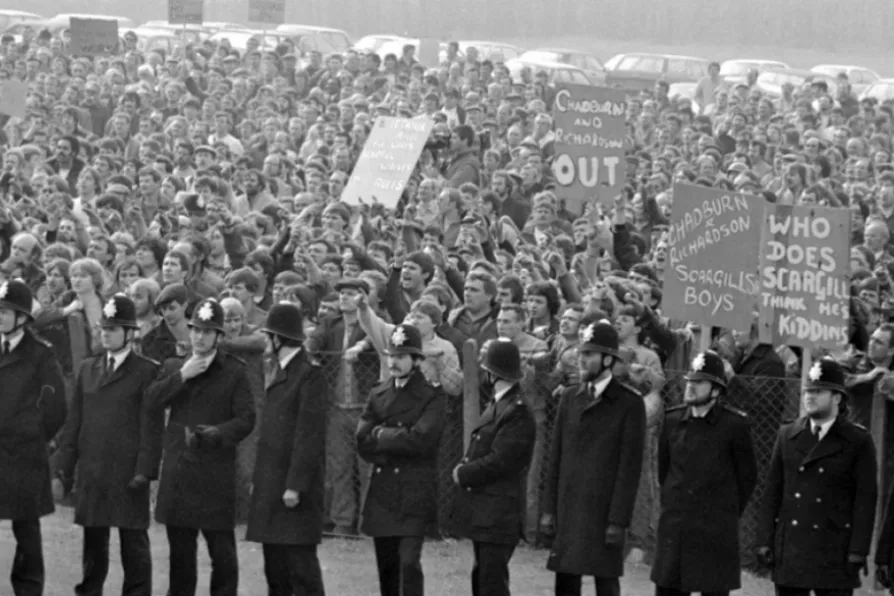CHRIS SEARLE speaks to Nicaraguan guitarist OMAR RIOS MELENDEZ
Capital support in every sense for miners during 1984-85 strike

 A ‘Right To Work’ Rally by miners at the Nottinghamshire NUM Headquarters, Mansfield, in May 1984
A ‘Right To Work’ Rally by miners at the Nottinghamshire NUM Headquarters, Mansfield, in May 1984
London and the 1984-5 Miners’ Strike
Edited by David Featherstone and Diarmaid Kelliher
THIS fascinating and well-edited collection of oral histories focuses on the role London and Londoners played in solidarity efforts to support striking communities in the 1984-5 miners’ strike.
Trade unionists, council workers, political activists, Lesbians and Gays Support the Miners (LGSM) and many others all came out in support and this rather eclectic mix made for some novel experiences — George Binette recalls the "culture shock" for some visiting London for the first time, while Mike Jackson of LGSM remembers the initial "trepidation" of bringing Geordie lads to a warehouse party.
Similar stories

Peter Mitchell's photography reveals a poetic relationship with Leeds

Ben Cowles speaks with IAN ‘TREE’ ROBINSON and ANDY DAVIES, two of the string pullers behind the Manchester Punk Festival, ahead of its 10th year show later this month

This is poetry in paint, spectacular but never spectacle for its own sake, writes JAN WOOLF

JOHN GREEN surveys the remarkable career of screenwriter Malcolm Hulke and the essential part played by his membership of the Communist Party










